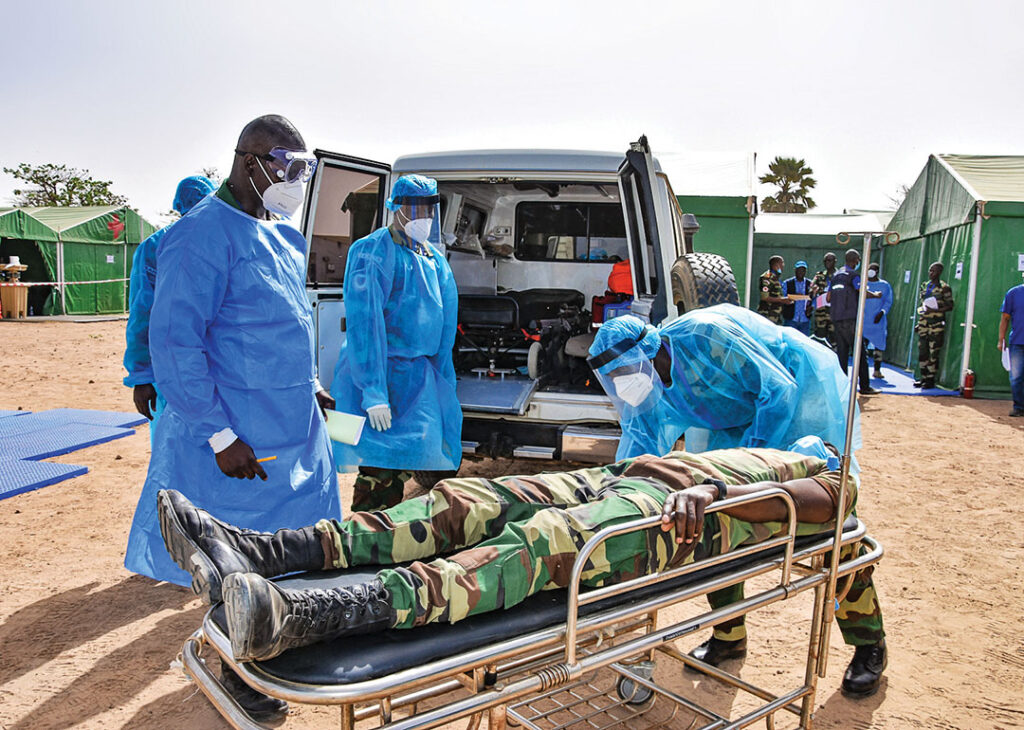Senegal’s emergency medical team became the first in Africa to receive World Health Organization certification for its ability to respond to health crises.
The recognition means the team can deploy to emergencies globally within 72 hours of being activated and set up a 30-bed hospital that can provide medical and surgical care for up to 2,500 patients per month. It is a milestone that “significantly boosts” Africa’s emergency response capacity, the WHO reported.
Senegal’s Type 2 Emergency Medical Team (EMT), made up of military health professionals and under the direction of the Army, underwent a rigorous, six-year process to earn the certification. This culminated in a three-day simulated mass casualty event attended by WHO officials at Captain Mbaye Diagne Tactical Training Center in Thiès in October 2024. Before the event, the team had trained to set up the hospital in 72 hours, but it completed the task in less than 48 hours.
“This certification showcases Senegal’s unwavering commitment to improving its capacity to manage health crises and protect populations, both domestically and internationally,” said Birame Diop, Senegalese minister of the Armed Forces.
The team has deployed to crises in the Democratic Republic of the Congo, Guinea and Sierra Leone. Representatives from five other countries attended the certification exercise to observe and draw inspiration. Some said they hope to see Senegal’s success replicated across the region.
“We are here as observers, as facilitators, as evaluators, but equally to be inspired by the Senegalese model,” said Capt. Sylla Salifou Marietou of Guinea’s EMT. “We consider it to be the top model to allow us to come to the aid of other countries in the case of need and for our internal plan.”
With the certification, Senegal’s EMT became the 49th certified team globally with 130 others still working to earn certification.
“This milestone contributes significantly to the region’s growing expertise in addressing public health emergencies,” said Dr. Matshidiso Moeti, WHO regional director for Africa. “EMTs are crucial in enhancing the capacity of national health systems, providing rapid lifesaving action in times of crisis.”

